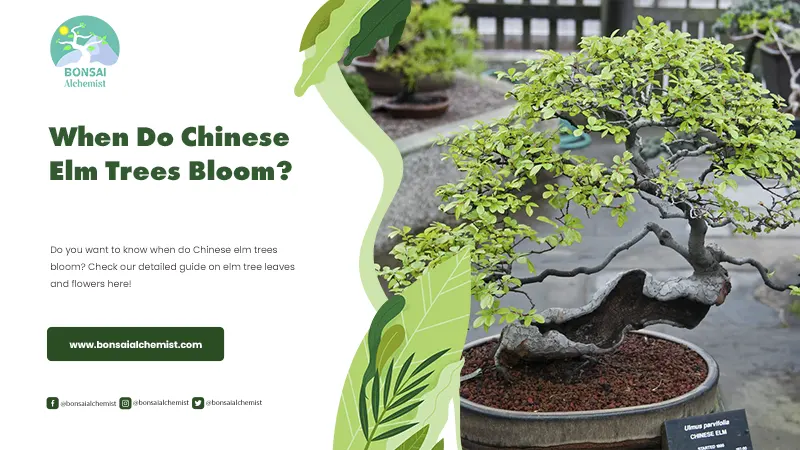Is the Chinese Elm Poisonous to Animals?
The leaves and bark of the Chinese Elm are mildly toxic to some animals. It’s best to keep it away from them, as ingesting parts of the tree can be bad for them.
Read on to see how it affects different pets.
We have a detailed bonsai tree care guide with all the relevant information. Check the guide out here!

Chinese Elm Toxicity and Common Animals
Here are some common pets and what you should know about the effect of the Chinese Elm on them in terms of toxicity.
Chinese Elm and Dogs
As we have said, the leaves and bark of the Chinese Elm are mildly toxic, and if eaten by your dog, it can irritate the stomach and cause diarrhea and vomiting.
If you suspect the dog has eaten parts of your elm, don’t wait to see what happens. Take the animal to the vet.
As an aside, bark from any tree is entirely undigestible for dogs and has to pass through the body. If they chew it into small enough pieces and there is enough, it can cause severe constipation and, in some cases, an obstruction in the bowels.
Chinese Elm and Cats
Cats are intrinsically curious creatures and will investigate any bonsai they can access. They will paw, sniff and nibble the tree, which should be discouraged both from the tree’s as well as the cat’s point of view.
In a similar vein to dogs, the Chinese Elm is mildly toxic to cats and can cause vomiting and diarrhea. The Chinese Elm can also act as an irritant to the cat’s skin.
Chinese Elm and Rabbits
As with dogs and cats, eating the leaves of the Chinese Elm can cause some minor gastrointestinal discomfort in rabbits.
Wild rabbits have been seen eating the leaves of elm trees.
Chinese Elm and Birds
Birds such as parrots, cockatoos, cockatiels, macaws, budgies, and love birds have become trendy pets and often have the run of the house. These birds can be very destructive to your bonsai, but the Chinese Elm is not toxic to them.
The seeds, or samaras, are favored by many species of bird. These seeds can also be eaten by humans and are edible raw, or cooked.
Chinese Elm and Rats and Mice
Rats and mice are very popular children’s pets. If they are allowed to roam freely, they will be attracted to your bonsai, and they love chewing wood. This makes Chinese Elm and rats and mice a lousy combination. The toxic ingredients in the bark of the Chinese Elm will make your pets extremely ill and can lead to death.
Chinese Elm and Other Animals
The Chinese Elm is not toxic to these animals:
- Horses
- Cattle
- Sheep
- Pigs
- Goats
- Alpacas
- Deer

Final Thoughts
The Chinese Elm is mildly toxic. It is not dangerous to larger animals such as horses and cattle at all. The tree also poses no risk to birds.
Dogs and cats should be kept away from your Chinese Elm so they are not tempted to nibble the leaves or gnaw at the bark. The mild toxins in the plant can cause gastrointestinal disorders, which can lead to many other problems such as dehydration.
Small mammals such as rats, mice, and hamsters should not be allowed anywhere near your Chinese Elm, both for the safety of your pet and the tree itself!






